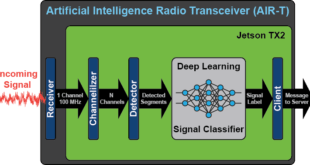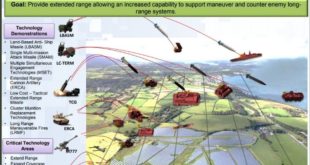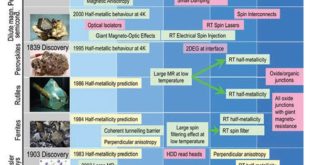High Performance Computing (HPC) refers to the practice of aggregating computing power in a way that delivers much higher horsepower than traditional computers and servers. HPC, or supercomputing, is like everyday computing, only more powerful. It is a way of processing huge volumes of data at very high speeds using …
Read More »Monthly Archives: May 2022
Unmanned Aerial vehicle (UAVs) swarms for Early warning of Chemical, Biological, Radiological and Nuclear (CBRN) Threats
The threats of chemical, biological, radiological, nuclear and explosive (CBRNE) hazards continue to advance. CBRN weapons are some of the most indiscriminate and deadly weapons in existence today, with capability to affect large population in wide geographical area and in short time. The release of Chemical, Biological, Radiological and Nuclear …
Read More »Next generation neuromorphic chips bringing deep learning from cloud to IoT Edge Devices and mobiles
Within AI is a large subfield called machine learning, the field of study that gives computers the ability to learn without being explicitly programmed. Instead of the laborious and hit-or-miss approach of creating a distinct, custom program to solve each individual problem in a domain, the single machine learning algorithm …
Read More »DoD Rapid Assured Microelectronics Prototypes (RAMP)
In Oct 2020, the Department of Defense announced it has awarded over $197 million to advance microelectronics technology and strengthen the American microelectronics industrial base. This critical industry will underpin the development of other Department of Defense technology priorities such as artificial intelligence, 5G communications, quantum computing, and autonomous vehicles. …
Read More »Organic or Plastic electronics promising for batteries, solar cells
While conventional electronics like computers and smartphones are built around silicon integrating billions of transistors and is manufactured using complex, costly and wasteful processes in multi-billion dollar foundries , organic electronics aim to replace this by “organic” semiconductors which are long chains of thousands of repeating molecules (a plastic), made …
Read More »Machine learning for radio frequency systems from wireless and Cognitive Radio to Militrary Radars
US considers the Electromagnetic domain that is the electromagnetic spectrum portion of the information environment as a domain of Warfare. Assured access to the RF portion of the electromagnetic spectrum is critical to communications, radar sensing, command and control, time transfer, and geo-location and therefore for conducting military operations. The …
Read More »Man portable military systems require Low Power Electronics technologies
The vision for the future soldier is to be combat effective and also highly mobile, adaptive, networked, sustainable with total battle space situation awareness and information assurance. Therefore, he is equipped with night- vision goggles, radios, smartphones, GPS, infrared sights, a laptop as well as batteries to power them. …
Read More »US Army’s LRPF developing long range Artillery systems to penetrate anti-access/area denial networks
While the Army has a variety of means to deliver long-range fires, such as organic attack helicopters and unmanned aerial vehicles (UAVs) and air support from Navy and Air Force aircraft, these assets are frequently unavailable due to adverse weather and terrain as well as availability. U.S. Army cannon artillery …
Read More »Spintronic materials
Spin electronics (also called spintronics, magnetoelectronics or magnetronics) is “A branch of physics concerned with the storage and transfer of information by means of electron spins in addition to electron charge as in conventional electronics.” Spin-based electronics focuses on devices whose functionality is based primarily on the spin degree of …
Read More »DARPA FFT challenge to develop alogorithms to accurately predict location of Floating sensors or floats in Oceans 10 days in Advance
“Oceans cover more than 70 percent of the earth’s surface, but we know very little about them,” said Ersin Uzun, vice president and general manager of the Internet of Things team at Xerox. Floating sensors, known as floats, can gather far more detailed information, and can remain at sea …
Read More » International Defense Security & Technology Your trusted Source for News, Research and Analysis
International Defense Security & Technology Your trusted Source for News, Research and Analysis








